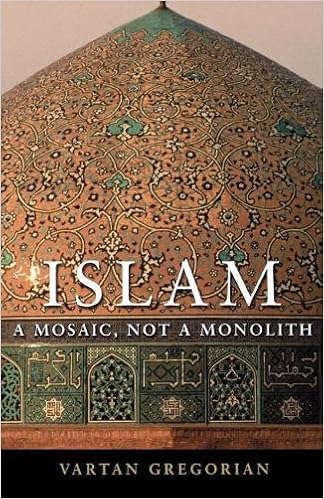
Gregorian's survey of contemporary Islam is well intentioned and disheartening. Its introduction announces that "there is a disconnect between our passions about Islam and our knowledge of it." Its coda offers a treacly plea for "mutual knowledge and understanding" by eliminating stereotypes and the like.
Gregorian, the famed former head of the New York Public Library and Brown University, and now president of the Carnegie Corporation, is by training an Afghan specialist—not a specialist on Islam. Unfortunately, it shows. The introductory chapter is a soppy apologetic. "Suggesting that the Qur'an had human authors is, of course, as blasphemous to Muslims as the Qur'an's denial of the divinity of Jesus' divinity is to Christians." One might expect all educated people of good will dealing with the relationship of the Qur'an to the Bible would take Harold Bloom's words to heart that "strong poets throughout the ages creatively misinterpret the dominant poetic forerunner, in order to clear imaginative space for yourself."[1]
A Mosaic, Not a Monolith is replete with factual errors, e.g.: Gregorian states that while Jews do not accept the New Testament, "Muslims do." In light of the fact that Qur'an 4.156-158 clearly states that Jesus was not crucified, one wonders what Muslim acceptance of the New Testament could possibly mean. Gregorian also misrepresents Islam's interpretation of Jesus' second coming: "In the end, Jesus and the other prophets will descend to be at the final judgment. Muslims also believe that Jesus' true message had been misinterpreted by his followers and that the Prophet Muhammad was sent to bring the definitive message of God." In fact, Islamic eschatology has Jesus return to "break the cross."[2]
A chapter titled "Clash of Modernists and Traditionalists" could have been titled, "Backwardness." The cultural and scientific backwardness of the Muslim world, along with its non-democratic, inequitable, and poor quality of life (except for the very rich) prevails, with no solution in sight. The resulting humiliation is certainly one cause of Islamist terrorism, more so than poverty or the twin fetishes of the Palestinian-Israeli conflict and the colonial past.
Gregorian revealingly titles one chapter, "Islamism: Liberation Politics" that, almost despite itself, establishes the Islamist goal of world domination. He quotes Ayatollah Khomenei: "Islam does not conquer. Islam wants all countries to become Muslim, of themselves." Hassan al-Banna, founder of the Muslim Brotherhood, allows that it "is the nature of Islam to dominate, not to be dominated, to impose its laws on all nations and to extend its power to the entire planet."
Gregorian recommends for Muslims (and, perhaps, for all of us) an oxymoronic system he calls "theo-democracy," i.e., "a divine democratic government," which he defines as a limited popular sovereignty under the suzerainty of God. Given the widespread tyranny, savagery, and instability in the fifty-five Muslim-majority countries, one has to wonder what Gregorian has in mind.
No comments:
Post a Comment